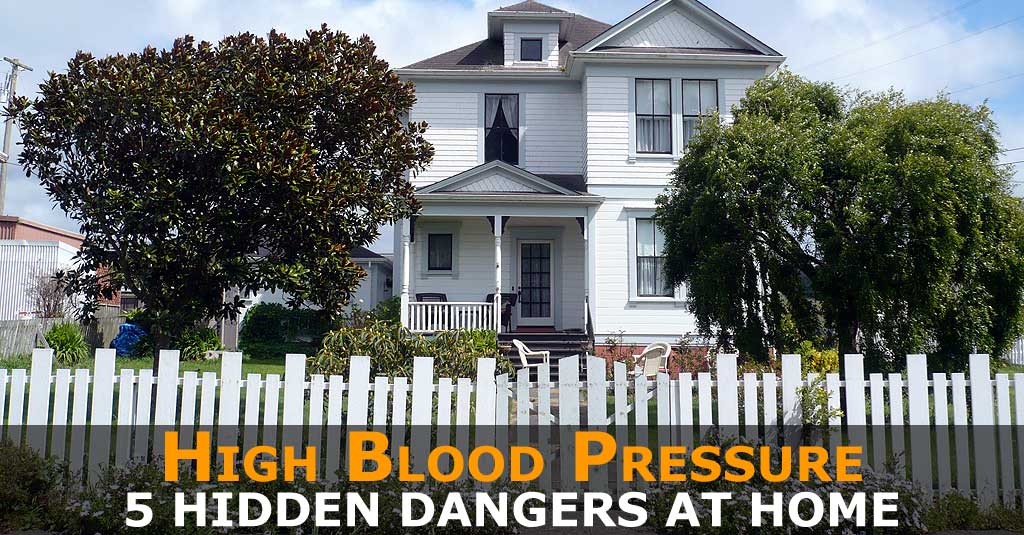High blood pressure, known medically as Hypertension, affects around one in three people and causes up to one in every four deaths worldwide.
It can strike at any age, but is more common the older you get. According to the statistics, even if you don’t have high blood pressure by the time you are 55, you still have a 90% chance of developing it later in life.
It’s well known that certain lifestyle factors can cause high blood pressure, such as being overweight, not exercising, and eating too much salt, but there are many other factors too.
Here are 5 everyday things to watch out for at home.
1) Liquorice
Liquorice contains the impossibly named chemical compound, glycyrrhizinic acid. Although this compound has health benefits, such as being a powerful anti-viral, it interferes with the body’s ability to mop up the stress hormone called Cortisol.
It also causes the body to retain more sodium and lose potassium, which makes you more sensitive to any salt in your food.
The combination of increased salt sensitivity and stress hormone levels work together to cause a serious rise in blood pressure, and even though the effect is temporary, the rise can take your blood pressure to dangerous levels very quickly.
Some people are more sensitive to glycyrrhizinic acid than others, but just 50g of liquorice has been shown to raise blood pressure in the most sensitive people, and 200g of liquorice will raise blood pressure for most people.
2) NSAID Painkillers
Over the counter painkillers seem to be a part of everyday life for many people. Studies have shown that two thirds of women and one third of men take an over the counter painkiller on a regular basis.
On average, each person takes more than one painkiller everyday, and one in twenty adults takes at least six painkillers each time they feel ill.
Two of the most commonly used painkilling drugs, Ibuprofen and Aspirin, are a type of drug known as Non-Steroidal Anti-inflammatory Drugs (NSAIDs) because of their ability to reduce inflammation as well as pain.
Whilst an NSAID, such as Aspirin, may be beneficial in low doses in the prevention of heart attack or stroke, the high doses of Ibuprofen many people routinely take for pain relief could be making their blood pressure much higher, and even stopping their blood pressure medication from working effectively.
Ibuprofen is found in many popular brands, including Advil, Calprofen, and Nurofen.
3) Dental Hygiene
Nearly half of adults over 30 years of age suffer with bleeding or swollen gums, which are signs of Gingivitis or Periodontal disease.
Recent studies have shown that people with bleeding gums are nearly twice as likely to suffer heart disease or stroke and higher blood pressure than people with healthy gums.
The researchers suggest that the bacteria in the mouth can enter the bloodstream and cause inflammation and clogging of the arteries, known as atherosclerosis.
Even if your gums are healthy, however, you may still be at risk of higher blood pressure if you use a toothpaste with a high sodium content, such as brands containing baking soda.
Some people are more sensitive to sodium than others, so whilst a baking soda based toothpaste may be fine for one person, it may aggravate the blood pressure of another.
4) Decongestants
Common decongestants such as pseudoephedrine and phenylephrine, which are often found in sinus, cold and flu medicines, can cause a temporary spike in blood pressure.
Common brand names containing these decongestants include Sudafed, Actifed, Claratin-D, Nurofen Cold & Flu and Aleve.
Decongestants work by narrowing the blood vessels, reducing blood flow and allowing the swollen sinus tissues in the nose to shrink. Although the rise in blood pressure is temporary, it can be dangerous to people with blood pressure that is already high or uncontrolled.
Decongestants are part of a group of blood pressure raising drugs called sympathomimetics, which include appetite suppressants like phentermine, as well as illegal drugs like cocaine, ‘speed’ (methamphetamine) and ‘ecstasy’ (MDMA).
5) Stress
As part of the survival response, our bodies are flooded with stress hormones whenever we feel threatened. These stress hormones get us ready to ‘fight’ or ‘flee’ from the threat, and they cause our blood pressure to rise in the process.
Unfortunately, the stresses of modern living can’t easily be fought or escaped, often leaving us in a constant state of emotional ‘red alert’.
Studies on working men and women in the USA, for example, found that those with most responsibility for running the home had significantly higher blood pressure than those who left it to their partner.
Stress can be caused by many things, and not everyone reacts to the same triggers, so it’s important to discover your own triggers and take steps to reduce them.
And remember, our network of Certified Hypnotension Practitioners are standing by if you need any one-to-one help.

